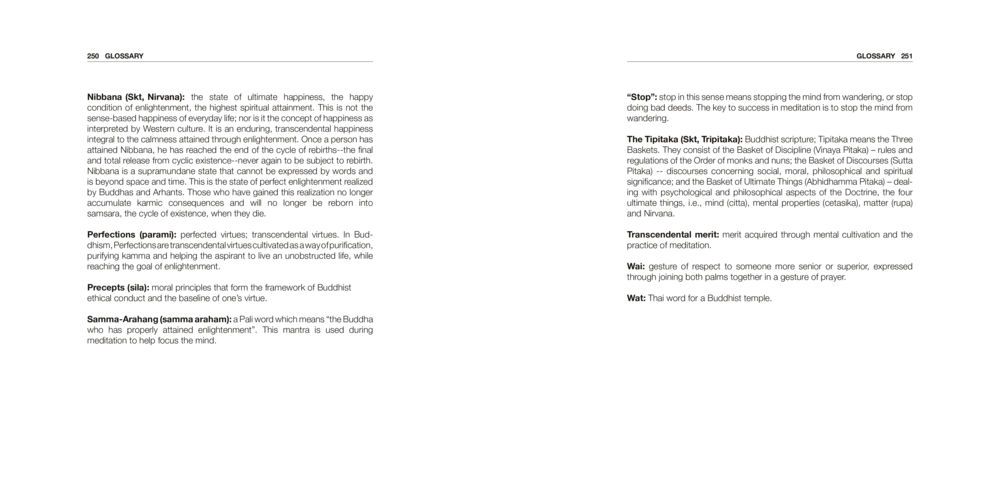Understanding Nibbana and Key Buddhist Concepts : หน้า 126/135
Khun Yai’s Teachings : หน้า 126/135 Explore the profound concepts of Nibbana, Perfections, Precepts, and more in Buddhism. Gain insights into enlightenment and the path to spiritual attainment.
0 ครั้ง

สรุปเนื้อหา
Nibbana, or Nirvana, represents the ultimate happiness in Buddhism, transcending ordinary joy and marking the end of the rebirth cycle. It's a state of perfect enlightenment that goes beyond language, space, and time. Perfections (parami) are virtues cultivated for purification and achieving enlightenment. Precepts (sila) form the ethical foundation of Buddhist conduct. The term Samma-Arahant refers to a fully enlightened Buddha, often invoked in meditation for focus. The Tipitaka, or Three Baskets, is the comprehensive Buddhist scripture covering discipline, discourses, and ultimate truths. Transcendental merit is earned through meditation and mental cultivation, while the gesture of Wai expresses respect in Thai culture, and Wats are the temples where Buddhism is practiced. For more information, visit dmc.tv.
หัวข้อประเด็น
- Nibbana
- Perfections
- Precepts
- Samma-Arahant
- Tipitaka
- Transcendental merit
- Meditation
- Wai gestures
- Wats







































































































































